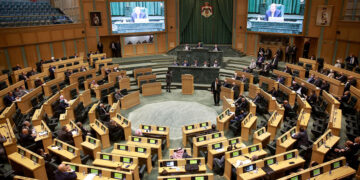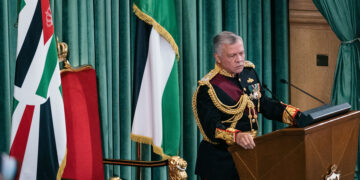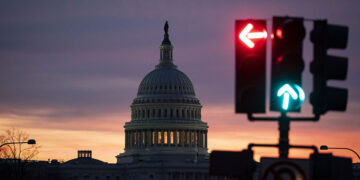Rights groups call on Formula 1 (F1) to disclose human rights articles in F1 contracts amid concerns over 'sportswashing' in Bahrain and Saudi Arabia
DAWN and 20 other organizations have sent a letter to Stefano Domenicali, CEO of Formula 1, asking him and his organization to use their platform to push for the release of political prisoners in Bahrain.
The full text of the letter can be read below.
Dear Stefano Domenicali,
We are writing to you in your capacity as the CEO of Formula 1 (F1) ahead of the start of the Bahrain Grand Prix on 3 March 2023 to raise our serious concerns over F1's ongoing role in "sportswashing" amidst a deterioration in Bahrain's human rights situation. Bahraini authorities are imprisoning its population at the highest rate of any country in the MENA region according to World Prison Brief, and Bahraini political prisoners remain behind bars and some face imminent execution, in violation of international law.
We condemn Bahraini law that criminalises peaceful protest and severely curtails freedom of speech, eliminating any space for those who wish to exercise their fundamental rights to freedom of assembly, expression and opinion, including by peacefully opposing F1's race in the country.
We are seriously disappointed that you chose to ignore our correspondence of 15 March 2022, and follow-up enquiries made on 19 and 23 March 2022 in violation of your own human rights policy, namely article 2(d) to "engage in meaningful consultation with relevant stakeholders in relation to any issues raised as a result of our due diligence, where appropriate". We hope that on this occasion you will treat our concerns with the seriousness that they deserve and respond accordingly.
F1's human rights articles
We note that in a 12 February 2023 interview with Sky Sports, you affirmed that you would "pull the Grand Prix, like you did in Russia" if F1 was not satisfied "with the way human rights issues have developed in a country" that hosts an F1 race. You went on to reference 'specific articles' in your contracts that were followed by 'independent auditors' and could be invoked if human rights were not "going in the right direction". However, it is unclear to us what specific human rights criteria F1 applies to make a decision to withdraw hosting privileges from a country.
Last year, Saudi Arabia performed a historic mass execution of 81 people in one day, condemned by the UN High Commissioner for Human Rights, just 15 days before the 2022 Saudi Arabian Grand Prix was held. This occurred in a context where a Saudi and UAE-led coalition has waged a disastrous war in Yemen since 2015, in which the warring parties have committed serious human rights violations, and amidst Saudi Arabia's "unbridled impunity and success at evading accountability for human rights violations, including apparent war crimes, in Yemen". Gulf dictatorships continue to oversee some of the most repressive and violent regimes on the planet while retaining their generous F1 contracts. It therefore appears that F1's threshold for a country to be considered as "not going in the right direction", thus causing the articles referenced to be invoked, is unreasonable to such a level that it is rendered meaningless.
With this in mind, and in the interests of transparency, we ask you to disclose the articles to which you refer as well as share the most recent human rights assessment of the "independent auditors", disclose how regularly these auditors conduct assessments, their names and how civil society can engage with said auditors.
F1's role in sportswashing ongoing repression & human rights violations in Gulf host countries
You have implied that F1 races bring an opportunity to scrutinise human rights, and that states that do not "go in the right direction" are a problem, stating: "I do believe once again we are much more powerful if we are going in places where they are showing a real will to change and the spotlight of Formula One will help the speed of change to be faster", and you further commented: "I'm a true believer in the fact that sport has to make sure that human rights is at the centre of our agenda […]". However, since your 2022 races, human rights in Bahrain and Saudi Arabia have been increasingly trampled upon by these autocracies. If you are serious about putting human rights "at the centre" of your agenda, such egregious violations must not go unchallenged by F1.
Indeed, 12 years on since Arab Spring uprisings swept across the Middle East, leading to the cancellation of F1's race in Bahrain, many of the countries in the region, including Bahrain and other Gulf host nations, maintain poor human rights records and continue to repress dissent. Despite this, today F1 chooses to stage its races in these dictatorial states without addressing mounting concerns over their violations of human rights.
Saudi Arabia continues to have one of the highest rates of executions in the world, executing 147 individuals in 2022. Furthermore, Saudi citizens are often subject to ruthless punishment for criticism of the government; Salma Al-Shehab, a Saudi student at Leeds University and mother of two young children was sentenced to 34 years in prison in August 2022 for following and retweeting dissidents and activists on Twitter.
Grave human rights violations in Bahrain
Bahrain's human rights landscape remains abysmal. Bahrain imprisons its population at the highest rate of any country in the MENA region, with an estimated 1,300 political prisoners in Bahrain's Jau Prison alone out of an approximate total inmate population of 2,900, many of whom have been imprisoned since 2011. In November 2022, Bahrain oversaw "sham" elections that were deemed to be the most repressive in 20 years and "took place amid serious restrictions on political and civil rights, free speech, and assembly".
There are currently 26 people on death row in Bahrain, all of whom are at imminent risk of execution having exhausted all legal remedies, and some of whom were targeted for their participation in protests. In October 2022, Human Rights Watch and the Bahrain Institute for Rights and Democracy (BIRD) reported that death row inmates in Bahrain were subjected to manifestly unfair trials and the use of torture, such as electric shocks to the chest and genitals, sleep deprivation, beatings, and attempted rape, to coerce confessions from at least eight of them, including torture victims Mohammed Ramadhan, Husain Moosa, Maher AlKhabbaz, Sayed Ahmed AlAbar, Husain Ali Mehdi, Husain Ebrahim Marzooq, Zuhair Ibrahim Jasim Abdullah, and Salman Isa Salman.
Furthermore, political prisoners who were subjected to torture and deprived of their liberty for their opposition to Bahrain's dictatorship will continue to languish wrongfully behind bars in Bahrain as the Grand Prix takes place mere miles away from their cells. This includes opposition leaders and human rights defenders Hassan Mushaima, Dr Abduljalil AlSingace, Abuldhadi AlKhawaja, Abdulwahab Husain, Sheikh Abduljalil AlMiqdad, Ali AlHajee, Naji Fateel, as well as Sayed Nizar Alwadaei who remains imprisoned in reprisal for his brother-in-law's human rights activism in the UK. Dr AlSingace has now spent over 1 year and 7 months on hunger strike, refraining from eating solid foods in order to demand that authorities hand his confiscated academic research over to his family.
As recently as January 2023, the Bahraini police raided cells of 14 political prisoners and allegedly tortured some of them.
Such rights abuses in Bahrain continue to be subjected to international scrutiny. In December 2022, the European Parliament overwhelmingly adopted an urgency resolution calling for the release of political prisoners, including AlKhawaja who the resolution notes has been subjected to "renewed judicial harassment" by authorities. Equally, around the anniversary of Bahrain's pro-democracy uprising on 14 February 2023 Bahrain continued to crackdown on its citizens, summoning and intimidating family members of those executed by the regime and arresting 16 people. On the anniversary, 30 cross-party United Kingdom (UK) parliamentarians called on the UK government to urge for prisoners' releases.
Lack of redress for victims of abuse linked to F1 races in Bahrain
Victims of abuse connected with F1's operations in Bahrain remain without redress or compensation. Najah Yusuf, who was convicted and imprisoned partly for her social media posts criticising F1 races, later tortured and sexually assaulted by authorities, and fired from her public sector job, has yet to receive any redress, despite F1's 2019 promise to highlight the United Nations Working Group on Arbitrary Detention's "findings and recommendations for redress and requesting that they [the Bahraini authorities] consider these in detail". Equally, her cellmate Hajer Mansoor has not been provided redress for the appalling abuse and reprisals to which she was subjected. You will be aware of the pending joint complaint filed by BIRD, along with both women, to the UK National Contact Point. Furthermore, the families of those who were killed by authorities for protesting during the Bahrain Grand Prix in 2012, such as Salah Abbas, have similarly not been afforded their right to redress.
F1 must call upon Gulf states to abide by international human rights law
In light of the above, it is abundantly clear that human rights in Bahrain and Saudi Arabia could not be further from "going in the right direction". F1's ongoing operations in these states, without efforts to address human rights concerns, will serve only to facilitate sportswashing of abuses. Should this state of affairs continue, Bahrain will continue to exploit F1's operations in order to launder its image on the international arena and thus cover up its ongoing serious violations, allowing human rights abuses to continue unabated.
High profile figures have used their platforms to highlight human rights violations in Bahrain and call for change. During his November 2022 visit to Bahrain, Pope Francis spoke out against the use of the death penalty and religious discrimination in remarks delivered in front of King Hamad in Manama. Similarly, Sir Lewis Hamilton has used his platform to highlight human rights in Bahrain and stated F1 was "duty bound" to raise awareness of human rights in host countries. It is clear that F1 drivers are ahead of F1 management when it comes to human rights, and have taken leadership in speaking out against abuses. It is high time that F1 follow this example and publicly call on its business partners to respect human rights.
We firmly support your comment that F1 "will never gag anyone" with respect to the International Automobile Federation's move to ban political speech, and we hope you will take a similar stance when it comes to repression committed by F1 host countries.
Our Requests
We call upon you in the strongest of terms to end your role in sportswashing authoritarian Gulf regimes' horrendous abuses, once and for all, by taking the following action:
Meet with victims of abuses directly linked to F1 activities and use your platform and influence with the Bahraini authorities to secure redress for them, including Najah Yusuf and Hajer Mansoor;
In the interests of transparency, disclose:
The articles in your contracts with states to which you refer in your 13 February
2023 interview;
The most recent human rights assessment of F1's "independent auditors";
The name(s) of these auditors;
How regularly these auditors conduct assessments; and,
How civil society can engage with said auditors.
Reconsider your position on F1's willingness to commission an independent inquiry to investigate human rights violations linked to F1 activities in Bahrain and Saudi Arabia, with a complaints mechanism to allow victims to report abuses;
Use all available leverage and your relationship with Bahraini authorities to publicly and privately call for the release of political prisoners in Bahrain, including: Hassan Mushaima, Dr Abduljalil AlSingace, Abuldhadi AlKhawaja, Abdulwahab Husain, Sheikh Abduljalil AlMiqdad, Ali AlHajee, Naji Fateel and Sayed Nizar Alwadaei, and death row inmates: Mohammed Ramadhan, Husain Moosa, Maher AlKhabbaz, Sayed Ahmed AlAbar, Husain Ali Mehdi, Husain Ebrahim Marzooq, Zuhair Ibrahim Jasim Abdullah, and Salman Isa Salman;
Issue a public statement calling on F1 host countries to respect human rights to freedom of expression and assembly, to ensure nobody is subjected to reprisals during the races, and calling on Bahrain in particular to reform its Law No. 22 of 2013 which imposes a blanket ban on all protests in the capital, Manama, where advanced written permission is not provided.
We invite you to meet with us to discuss this further.
Yours sincerely,
Bahrain Institute for Rights and Democracy (BIRD)
ALQST for Human Rights
Americans for Democracy & Human Rights in Bahrain (ADHRB)
Arab Organisation for Human Rights In UK
ARTICLE 19
Campaign Against Arms Trade (CAAT)
CIVICUS
Democracy for the Arab World Now (DAWN)
Detained International
European Centre for Democracy and Human Rights (ECDHR)
Football Supporters Europe
Gulf Centre for Human Rights (GCHR)
Human Rights First
Human Rights Watch
IFEX
International Service for Human Rights (ISHR)
Sport & Rights Alliance
The #FreeAlKhawaja campaign
The Army of Survivors
the International Trade Union Confederation (ITUC)
World Players Association







































